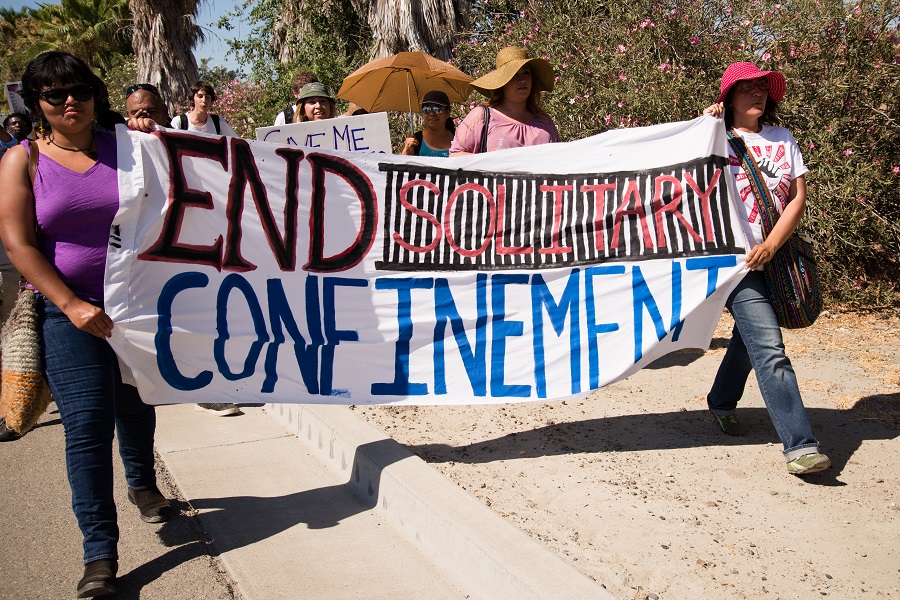
OAKLAND, CA (February 14, 2020) This month, the leaders of the hunger strikes that swept through the California prison system in 2011 and 2013 released a statement reporting on the progress that had been made and the work that still needs to be done.
“Without prisoners speaking about our conditions of confinement, the public narrative about imprisonment and mass incarceration is missing a critical voice – our voice, the incarcerated,” write Todd Ashker, Arturo Castellanos, George Franco, and Sitawa Nantambu Jamaa, the four “prison reps” who planned the first hunger strikes. “We are the first-hand experts on the daily experience of being caged in prison generally and the trauma of extreme isolation.”
The statement makes five key demands:
- That existing prisons emphasize programming and opportunities for people to gain skills, not repression and punishment;
- That systemic changes must be made in sentencing policies so that the trend toward mass incarceration can finally be reversed;
- That the use of coerced confidential informants be ended;
- That fellow prisoners end hostilities between groups and settle disputes through diplomatic means;
- That the vicious and provocative culture instigated by prison guards be addressed.
The hunger strikes – which at their peak had more than 30,000 people participating – brought national attention to the brutality of solitary confinement and the conditions of California prisons in general. In 2012, the Center for Constitutional Rights, along with several other attorneys and organizations and a representative group of ten Pelican Bay Secure Housing Unit (SHU) prisoner plaintiffs, filed a lawsuit challenging California’s practice of indefinite solitary confinement. In 2015, a landmark settlement was achieved that ended indeterminate solitary confinement in California and allowed the legal team to monitor the California Prison System to ensure compliance.
“The leadership showed by the four reps in issuing their Call to End Hostilities in 2012, and in filing a lawsuit challenging the constitutionality of their confinement have resulted not only in thousands being released from solitary confinement, but helped usher in many changes,” says Laura Magnani, a program director for the American Friends Service Committee in Oakland who served on the mediation team for the hunger strikes. “These men risked their lives in a non-violent action to protest their long term isolation at California's notorious Pelican Bay Prison, and we will continue to work with them to achieve the changes they seek.”
You can read the full text of the statement here.
###
The American Friends Service Committee is a Quaker organization that includes people of various faiths who are committed to social justice, peace and humanitarian service. Its work is based on the belief in the worth of every person and faith in the power of love to overcome violence and injustice